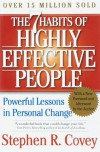Small Business Books
The vetting process: How I select which authors are worth my time to read

Mike Michalowicz seems to be an interesting character, as evidenced by the name of this book. His bio states that he founded and sold two multi-million dollar businesses by the age of 35. But this actually isn't the interesting part. The interesting part is that this success gave him the confidence to become an angel investor which ultimately led to him dramatically losing his entire fortune which prompted him to build yet another million dollar business.
One of the biggest doubts entrepreneurs face, I believe, is the question of fate. Is it possible that other people's success is impossible to emulate because they were simply in the right place at the right time?
It isn't as far fetched as it might sound. "Survivorship bias" is a well-known psychological illusion that is demonstrated when observers see only a result that has been filtered. A good example is the S&P 500, which consists of only active businesses. However, if you roll back through time, some of these businesses have gone under but were replaced by others in the index. You don't see these non-survivors when you look back at the charts.
Another example is entrepreneurship and similar high-risk pursuits. You aren't going to see a lot of TED Talks from people who failed at their businesses. You aren't going to see a lot of founders-turned-pizza-guys writing books, conducting seminars, giving inspirational speeches at schools, etc. Those areas will almost always only be filled by the those who "survived."
To make matters worse, another bias exists called the "focusing illusion" that causes the most retrievable memories in your mind to create the illusion that those things are more prevalent or more representative instances of reality than the ones that are not focused on.
An extremely common example of this is when people say things like "the world is crazier than ever these days," "these are dangerous times" or "shootings are on the rise." These things are often said by the most comfortable and safe people who have ever lived in history and at a time when violence has trended significantly downwards. However, with no point of reference it is easy for the mind to interpret news stories as if they are representative of larger sets of data. Because exceptional events like hurricanes and extreme violence are so rare that they are interesting enough to cover as news, they ironically become ever-present in the mind of the populace which thus concludes that they are actually common.
The same goes for entrepreneurship. One could easily look at the multitudes of books, success stories, video courses, social media personas, etc. and come to the reckless conclusion "everyone who does this is getting rich" or "every entrepreneur is achieving their dreams."
The key question is "is what I'm seeing and thinking about indicative of the larger picture?"
The same could be said about Mike Michalowicz's story. He had built two multi-million dollar businesses by 35. Impressive? Sure. But maybe he got lucky on the first one and then all the extra capital and clout he had built made it possible to build the second one. Maybe lightning just happened to strike twice while he was in the right place at the right time.
This may sound overly negative, but it was nearly proven true. His own biased opinion of his business prowess was exactly (or at least part of) what lead him to disaster in angel investing. Similar stories abound of other entrepreneurial prodigies who are too quick to interpret their past success as indicative of future returns. For a more grand historical example, one need only look at the famous failed invasions of Russia conducted by some of history's most notoriously successful military leaders. Both Napoleon and Hitler made almost identical mistakes, successfully plowing through after country until they eventually bit off more than they could chew and sustained crippling losses in the bitter Russian winter.
So, what happened after Mike's devastating losses? This moment was truth time. The fact that he was able to restore his success after losing everything is evidence to me that success is not a matter of being in the right place at the right time. It's a matter of knowledge, skillset and drive.
Of course, external circumstances will always play a part and this may be quite significant. But it is not a total verdict-maker. In fact, the very fact that I'm writing an article about this is an expression of selectivity or survivorship (this post wouldn't exist or you at least wouldn't have read this far if it were about a story more banal).
Keep in mind that I said "evidence." Like all the examples cited prior, it is possible that even Mike's third success was again exceptional and not indicative of a larger pattern. Who knows? Maybe all three of his successes were tied to one external circumstance- like an outstanding business connection or investor who played a major part in all three scenarios. There are a lot of confounding variables in anyone's life and it is difficult if not impossible to come to a sweeping conclusion from a quick overview or scan of a website bio.
However, in the context of a case study (not inductively inflated data) Mike's story could be viewed as an example of someone who has ridiculously high "hit rate" in business that warrants investigation. Remember, the number of entrepreneurs who "make it" is relatively small. So when someone hits three home runs, you may want to take a closer look at what they are doing.
This is my reason for recommending Mike's books. It's easy to compile advice from a bunch of different business owners and even easier to take a bird's eye view of someone's success, weave your own narrative to explain why everything happened the way that it did and then turn it into your own book of genius insights. It's something else entirely to take a success, tear it completely down, and rebuild the whole thing from scratch in real life.
For this reason and no other is why I highly recommend checking out this book and others like it to see what tools you can acquire. In a world where information is nearly unlimited and it takes virtually no qualifications to be considered an expert, it is critical to be selective with what data you choose to import into your brain. Every minute spent on glib blog posts from Yahoo News and friends is a minute that could be better spent getting real tools and actionable advice from people who have a track record of success.
More advice from Mike can be found in an article here (specifically geared towards contractors and similar small businesses) where he details one of his strategies for acquiring leads. And for those looking for other successful entrepreneurs like Mike who have track records of success, they would be well served in checking out advice from the likes of Bryan Sebring, Tom Lopatosky and the others mentioned in this article.





